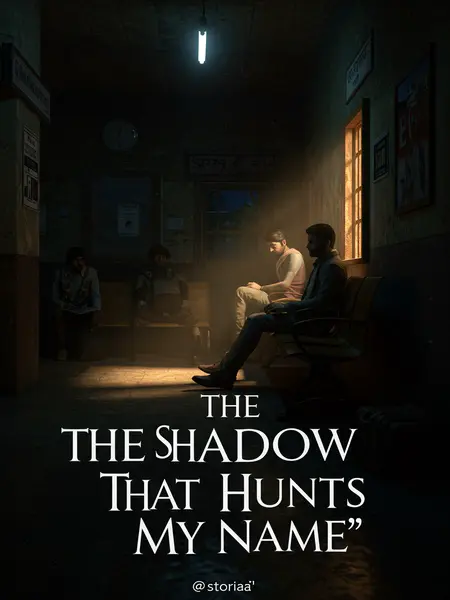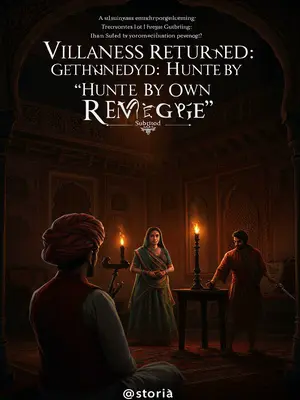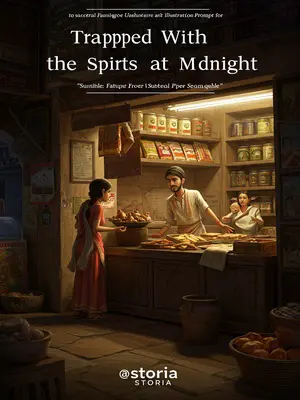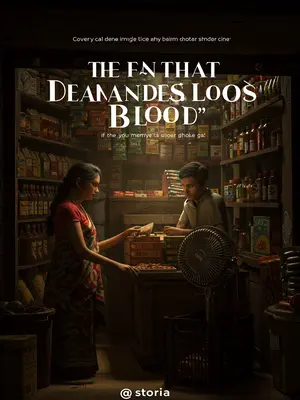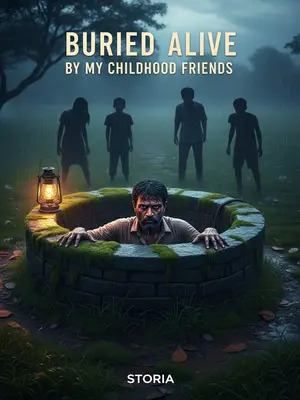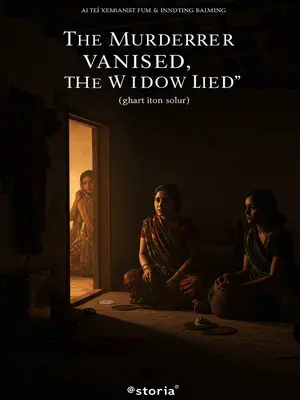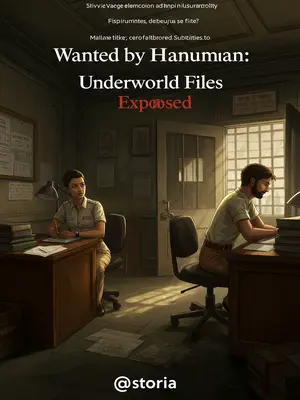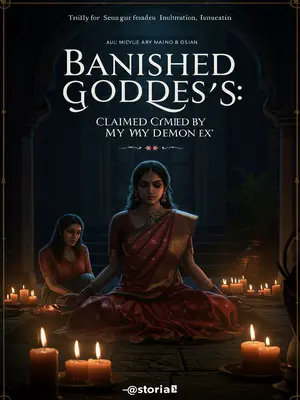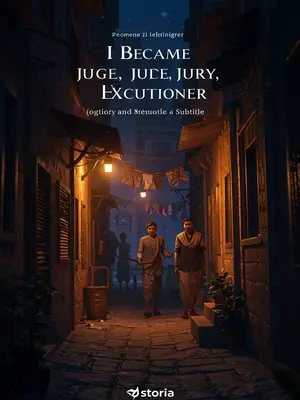Chapter 1: The Shadow Returns
Woken in the dead of night by the insistent drumming of rain, I stumbled out of bed to shut the window—only to be dazzled by the sight of a huge, brilliant moon hanging low over Pune’s rooftops.
The air was heavy with that peculiar petrichor that comes after a spell of rain in Indian cities, the smell of wet earth and dust mixing with the distant aroma of frying pakoras from some late-night chaiwala stall on the street below. Somewhere, a rickshaw splashed through a puddle, and I heard the distant clang of a milkman’s cycle bell. My bare feet pressed against the cool mosaic tiles, sending a shiver up my spine. I pulled my faded cotton kurta tighter around me as I tiptoed to the window, eyes still half-glued with sleep, blinking at the sudden, silvery brightness.
Such a clear night—where was the rain coming from?
I squinted past the mosquito netting, just as a gust of wind rattled the windowpanes. The streetlights below painted golden puddles on the road, but the sky above was empty—no clouds, not even a single rumble of thunder. I frowned, rubbing my eyes, wondering if my mind was playing tricks on me.
But just now, something had definitely knocked on the glass.
My heart jumped. I looked at the window, bracing myself to see maybe a gecko or a moth. Instead, the pane shimmered, as if an invisible finger had traced a circle in the condensation. My breath caught. Dadi’s stories about spirits wandering at night suddenly didn’t seem so far-fetched.
I leaned out to have a look.
Outside, the air was thick with the scent of jasmine drifting from the neighbour’s balcony, mixed with the acrid tang of a burnt-out mosquito coil. There, bathed in moonlight atop the building opposite ours, was a massive black shadow waving at me. It wasn’t the playful sort of wave—it was slow, deliberate, like an old uncle beckoning you into a darkened room during a power cut—except this was no game.
Still drowsy, I barely had time to react before a hand clamped over my mouth from behind.
I tried to shout, but the familiar scent—my mother’s sandalwood oil and the faint tang of her nightly face cream—told me instantly who it was. My body went stiff as a board.
"Don’t make a sound—it can hear you."
1.
My mother had covered my mouth and was slowly backing us away from the window, step by careful step.
Her hand shook, nails digging into my cheek, but her eyes stayed glued to the window. The black shadow on the rooftop across the street kept waving, its outline much larger than any human. There was something both human and impossibly wrong about its movement, like the moonlight was bending around it. The nervous tick-tock of the old wall clock behind us echoed, its pendulum swinging like a heartbeat.
Only when we’d made it a good two metres from the window did my mother finally let go.
She rushed to the bedside and shook my father with desperate urgency.
"Utho, utho! Woh aa gaya hai, mil gaya humein!"
Her voice was raw, nearly cracking. She shook him like she was trying to wake someone trapped in a nightmare. My father had been dead asleep, but her words jolted him up.
"Kya bola?"
My mother’s voice trembled as she lowered it, panic shining in her eyes.
"Woh... woh mil gaya. Aa gaya hai."
The way she said "woh" made my skin crawl. She clutched her dupatta to her chest, eyes darting between the window and my father, as if even a whisper might draw its attention.
In the moonlight, I saw my father’s face turn pale in an instant. He gripped the edge of the bed so hard his knuckles whitened, like he was bracing for an earthquake. The colour drained from his cheeks, the lines on his face deepening. In that moment, he looked much older than his forty years—like a man carrying a weight too heavy to bear.
"Kahan? Kya dekha tune?"
His words came out in a sharp whisper, almost a hiss. He looked at me, then at my mother, his hands balling into fists.
"I saw it. Right on the rooftop across the street."
My father jumped from the bed and rushed to close the window.
He moved with a sudden, frantic energy, shoving past the mosquito net, his feet thudding against the old wooden floor. I watched him fumble with the latch, his hands trembling.
When I looked again, the thing had already vanished.
A chill crawled down my spine. The rooftop across the street was empty now, washed in soft yellow light. Only a stray dog barked, chasing some invisible enemy.
"Saalo ho gaye, itne baar jagah badli, phir bhi dhoond leta hai humein."
My father yanked the curtains tightly shut.
He didn’t bother to check if they covered every inch, just made sure not a sliver of moonlight leaked through. I heard the rings scrape on the rod, a harsh metallic sound that made me flinch.
The room was pitch dark; we hadn’t turned on any lights.
The sudden darkness pressed in on us, amplifying every sound: my mother’s ragged breath, the ticking clock, the rain that had stopped as abruptly as it started. Outside, a rickshaw honked, and somewhere in the distance, a dog howled.
"Papa, Mummy, what is that thing?"
My mother quickly covered my mouth again. Her bangles clinked softly as she pressed her hand to my lips, the smell of sandalwood thick in the air. Her palm felt clammy. She stared into my eyes, her face drawn tight with fear. Memories of old folk tales and whispered warnings flickered through my mind.
"Chup! Don’t make a sound—it can hear you."
She glanced nervously at my father, as if she expected the thing to burst through the wall any second. My father pounded the bed with his fist, worry etched deep on his face.
"Baccha bada ho gaya hai ab. Uski roshni zyada tez hai. Usko dhoondhna ab pehle se aasaan hai."
He said this as if it explained everything, but I just stared at him, confused and angry. My mind whirled—what roshni? What did it want with me? My mother clenched her fists, her eyes full of hurt and sorrow.
Her lips trembled. For a moment, she glanced at the framed photo of a smiling boy on the dresser, the faded marigold garland slipping off the cover.
"Ek bachcha toh le gaya tha. Aur kya chahta hai humse? Kab chhodega humein?"
Her voice cracked, tears streaming down her cheeks. She pulled her dupatta over her head and sat at the edge of the bed, rocking back and forth, the way Indian mothers do when the world becomes too much.
